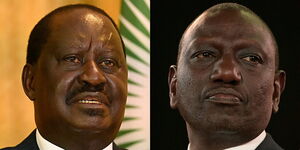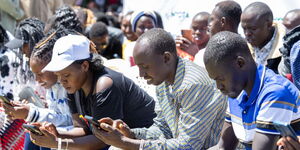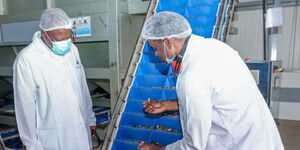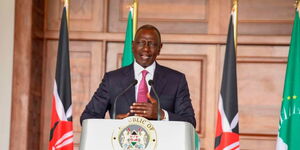The National Hospital Insurance Fund (NHIF) chief executive, Geoffrey Mwangi, has revealed that hospitals have been unscrupulously benefiting from money set aside for expectant women.
The Insurance Fund noted that some facilities have been pushing mothers into unnecessary Caesarean-section because the procedure generates more money for doctors and institutions compared to natural births.
According to the NHIF records, the C-section - a surgical operation to help in delivery - accounted for 58.2 percent of the institution's maternity costs, as a third of the women covered by the fund opted for the operation.
“It is strange we are paying more for emergency deliveries given that we do not pay for elective C-section,” stated Mr Mwangi.
He added that the fund has started a tough vetting for the operation.
[caption caption="NHIF CEO Geoffrey Mwangi"] [/caption]
[/caption]
NHIF's pay-outs for C-section births hit 1.2 Billion in 2017 alone, raising concerns that hospitals could be pushing women to surgery for financial gain.
Mr Mwangi further noted that some hospitals have been billing for surgical procedures which had actually not taken place.
“We are going to follow the women and ask them whether they underwent the procedure because in some cases, mothers give birth normally and the doctors bill us for emergency delivery,” he asserted.
Mr Mwangi also highlighted that the payments for the procedure in the last year surpassed budgets, underlining how widespread its use has become in Kenya.
In 2015, the NHIF board increased the amount allocated to CS births from Sh18,000 to Sh30,000.
The fund pays Sh10,000 for normal delivery having increased it from Sh6,000.
[caption caption="Mothers during a breast-feeding training program."] [/caption]
[/caption]
World Health Organisation (WHO) warns that the procedure — which has become the most common surgery globally — is increasingly being used when unnecessary.
“Although it can save lives, Caesarean section is often performed without medical need, putting women and their babies at risk of short and long-term health problems,” WHO posed.

KNEC Confirms Dates for 2025 KCSE Release News Just In











